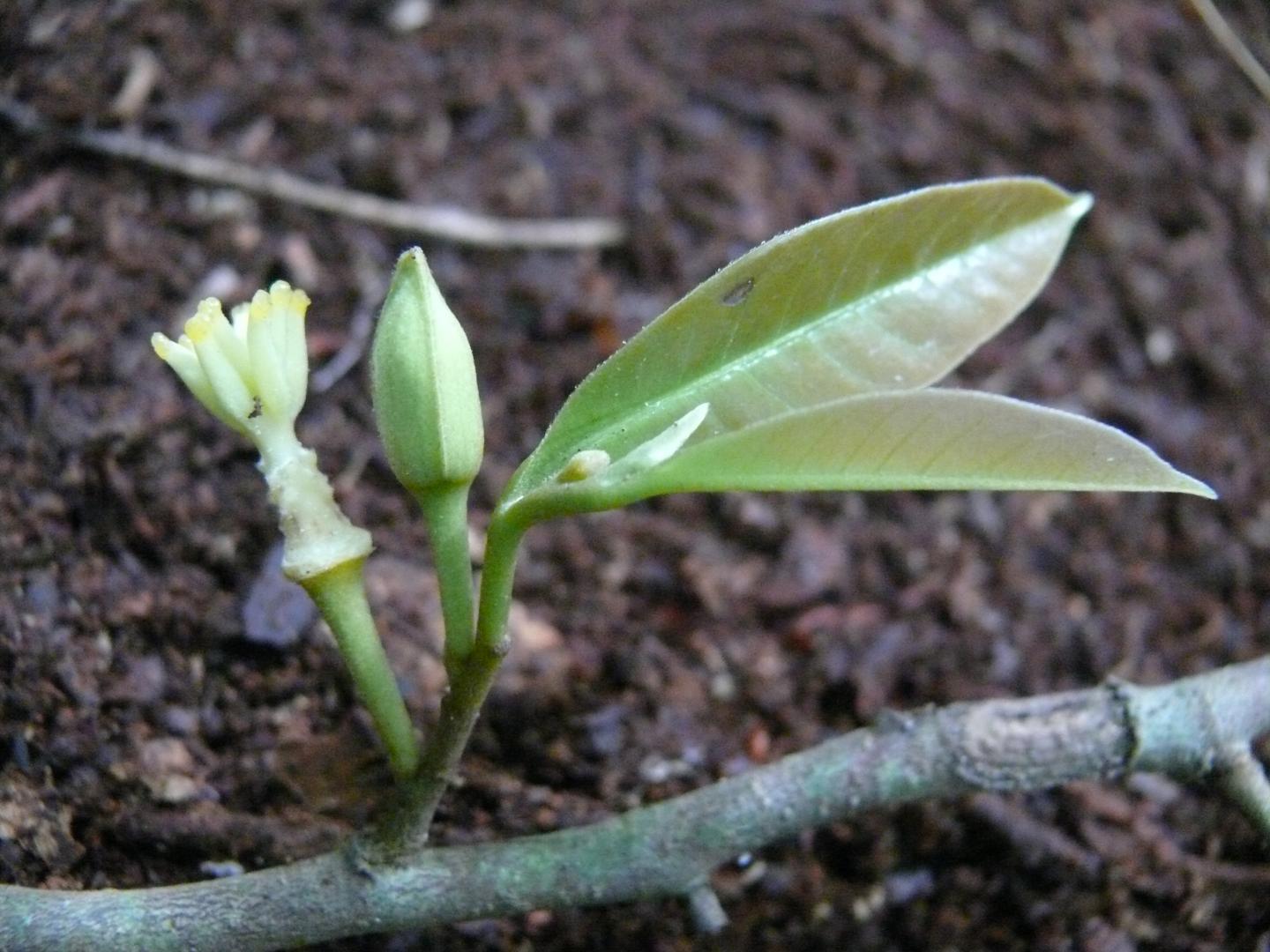
Credit: Dr Andy Marshall
Researchers have discovered a new species of tree in the Usambara Mountains in Tanzania, part of the Eastern Arc Mountains, and a globally important region for species in need of conservation.
The tree, which grows up to 20m tall and has white flowers, has been categorised as endangered due to its restricted population range at only 8km-sq. It is as yet unknown what kind of wildlife might rely on the tree, but it is most likely pollinated by a species of beetle.
Researcher Dr Andy Marshall, from the University of York’s Department of Environment and Geography, discovered the tree when carrying out a survey of the forest to understand the environmental factors that influence the amount of carbon that forests can store.
Botanist George Gosline, from Kew Gardens, recognized that this is a new species related to a group previously thought to be restricted to western Africa. This in turn led to recognition of three new species in the group.
Dr Marshall said: “The tree is in a particularly beautiful part of the world – up high in the clouded mountains and surrounded by tea estates. Now that we know it exists, we have to look at ways to protect it.
“With such a small population, it is important that it does not become isolated from other forests in the region, due to increasing agriculture. Small forests need to be connected to others to ensure seed dispersal and species adaptation to climate change.”
The forests of these mountains have been reduced in size by thousands of square kilometres over the past hundred or so years and are now threatened by climate change. The researchers argue that it is essential to look at conservation methods in order to maintain or increase the tree population.
Research shows that forests that have been restored with the help of human intervention rarely achieve the same number of species that would have occurred naturally. This means that conservation efforts should begin before any further damage occurs.
A research project, led by Dr Marshall, in another part of Tanzania, the Magombera Forest, should provide researchers with further understanding of the best methods to employ for protecting these secluded rare species. The project includes working with local villagers to develop new methods for restoring forests and to find alternative sources for wood, and how local people can help to reduce wildfires and invasive vines that can kill trees.
With local support, thousands of small trees have grown back in areas once lost, suggesting that a similar approach could be used in other areas where species are at risk of becoming extinct through human activity and climate change.
George Gosline, botanist from Kew Gardens, said: “The discovery of this extremely rare species reaffirms the importance of the Eastern Arc Mountains as one of the most important reservoirs of biodiversity in Africa.
“The area is a refuge for ancient species from a time when a great forest covered all of tropical Africa. These forest remnants are precious and irreplaceable.”
The discovery is not the first to be made in the region by Dr Andy Marshall; other discoveries in the Eastern Arc Mountains include a new chameleon species and the Polyceratocarpus askhambryan-iringae tree, which was discovered by chance whilst Dr Marshall was researching one of the world’s rarest primates, the kipunji monkey.
###
The research, funded by the Leverhulme Trust; Royal Botanic Gardens at Kew; Australian Research Council; African Wildlife Foundation; Flamingo Land Ltd.; and the B. A. Krukoff Fund for the Study of African Botany, is published in Kew Bulletin.
Media Contact
Samantha Martin
[email protected]
Original Source
https:/
Related Journal Article
http://dx.




